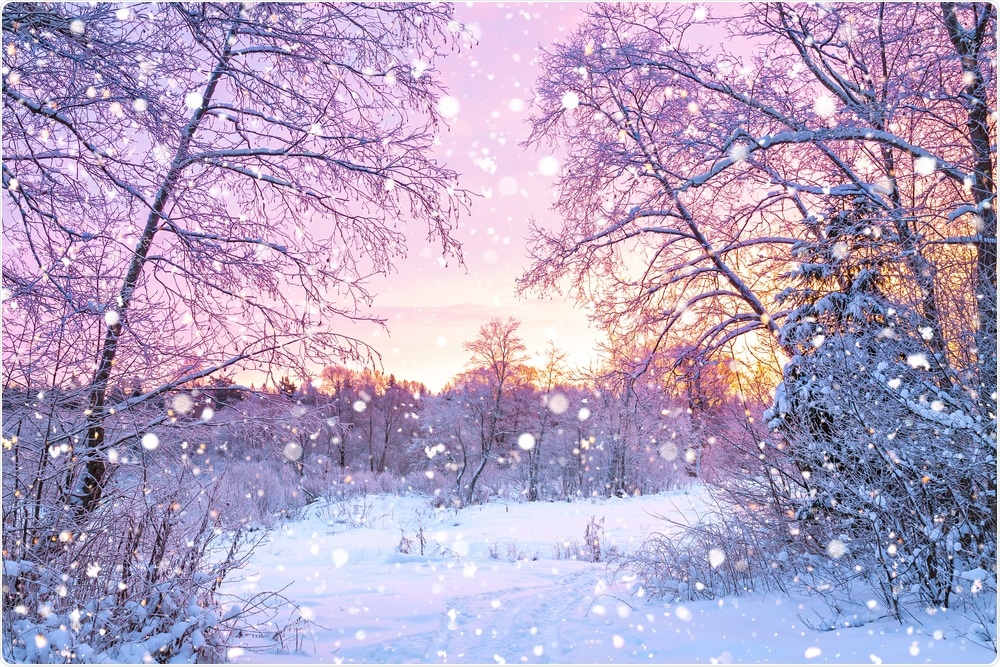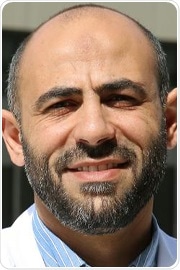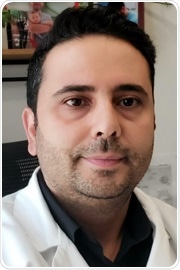The question of whether COVID-19 will become seasonal and just wane in summer has been of interest since the beginning of the pandemic.
Therefore, we decided to review the current knowledge on seasonality of respiratory viruses including common cold coronaviruses as well as drivers of seasonality and build on that evidence to project whether COVID-19 will follow suit of other seasonal respiratory viruses.
.jpg)
Image Credit: narci5/Shutterstock.com
Can you describe what is meant by a ‘seasonal virus’ and what are the common seasonal patterns observed?
Seasonal viruses are those viruses that tend to circulate and peak during specific seasons (months) in the year.
Respiratory viruses such as influenza, respiratory syncytial viruses, and common cold coronaviruses are known to spread and peak during cold months in countries with a temperate climate.
Why do respiratory viruses follow seasonal patterns in temperate regions but not in tropical regions?
This is not fully understood. Many factors affect seasonality including host susceptibility and behavior, and virus stability. Although respiratory viruses tend to circulate year-around in tropical regions, the peak activity is usually associated with the rainy season.
Research has shown that for instance for influenza viruses low and high humidity promotes viral transmission, while moderate humidity does not promote transmissibility. It is worth noting here that transmission could be either by direct contact with infected persons/contaminated objects or airborne. These modes of transmissions are determined by temperature and humidity.
For example, higher relative humidity will result in the formation of a large viral particle, which settles down on surfaces much faster, and hence, transmission occurs mostly through direct contact of contaminated surfaces. This could be one reason for the different seasonal patterns of respiratory viruses observed in tropical and temperate regions.

Image Credit: yanikap/Shutterstock.com
How did you carry out your research into SARS-CoV-2 potentially becoming a seasonal virus? What did your results show?
We reviewed existing knowledge on the seasonality of respiratory viruses and the current knowledge about SARS-CoV-2.
We hypothesized that COVID-19 will continue to circulate year-round until herd immunity is achieved.
In your research you stated that COVID-19 could become a seasonal virus but only when herd immunity is reached. Why is this?
As population immunity builds up, the transmission rate of the virus will drop making it more susceptible to environmental factors that govern seasonality.
How could herd immunity be reached for SARS-CoV-2?
Ideally, vaccination and natural infections and cross-immunity with common cold coronaviruses can also contribute to reaching herd immunity.

Image Credit: Lightspring/Shutterstock.com
Why is it so critical that public health measures are introduced to help control the virus?
The majority of populations are still susceptible to the infection. With the absence of effective vaccines and antivirals drugs, public health measures remain the only way to mitigate the pandemic.
We have seen a tremendous rise in cases in many countries after the ease of restrictions.
Do you believe that if strong public health measures are introduced, we could potentially manage the virus and prevent it from becoming a seasonal respiratory virus?
It is difficult to say. Public health measures reduce COVID-19 transmission anyway, so it will be difficult to tell whether the reduction in virus activity is affected also by seasonal factors. Since 2000, four new coronaviruses appeared in the human population: one was controlled in about two years (SARS-Cov-1; 2002-2004), two became seasonal (HKU1 and NL63; 2005-ongoing), and one still causing sporadic cases, mostly in the Gulf States (MERS-CoV; 2012-ongoing).
On the other hand, we experienced rapid and worldwide spread of SARS-CoV-2. We expect the virus to continue to spread until herd immunity is achieved and mostly become seasonal like HKU1 and NL63.
On a related subject, FLU viruses have shown diminished circulation in most countries, even after the start of the fall season. This could be partially attributed to the social measures being applied (no big gathering, no schools, etc) in the community that have some level of immunity to the virus.
What are the next steps in your research into COVID-19 and viruses?
We will be monitoring respiratory viral infection including COVID-19 to determine any potential interferences among them.
We will also monitor changes in the SARS-CoV-2 that might lead to evading the immune response.
Where can readers find more information?
About Dr. Hadi Yassine
Dr. Yassine is an associate professor of infectious diseases and the section head of research at the Qatar University Biomedical Research Center.
He obtained his Ph.D. from the Ohio State University in 2009 and worked for five years at the Vaccine Research Center of NIH before he joined Qatar University in 2015.
He published more than 70 articles and contributed to several patents on viral vaccines.
About Dr. Hassan Zaraket
Dr. Zaraket is an assistant professor of virology and assistant laboratory director of the Center for Infectious Diseases Research at the Faculty of Medicine, American University of Beirut (AUB). He has 14 years’ experience working on respiratory viruses including influenza.
Before joining AUB, he worked at the Center of Excellence for Influenza Research and Surveillance at St Jude Children’s Research Hospital, USA. His work included studying emerging influenza viruses with pandemic potential such as H5N1 and H7N9.